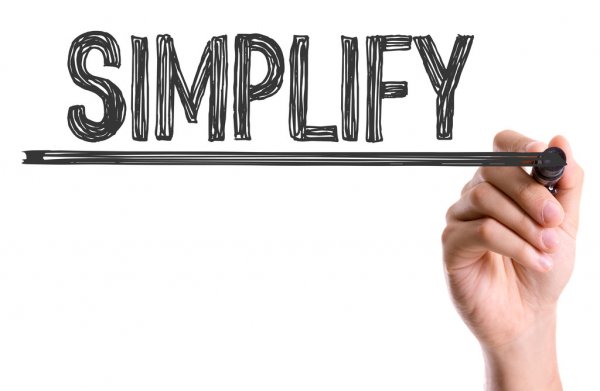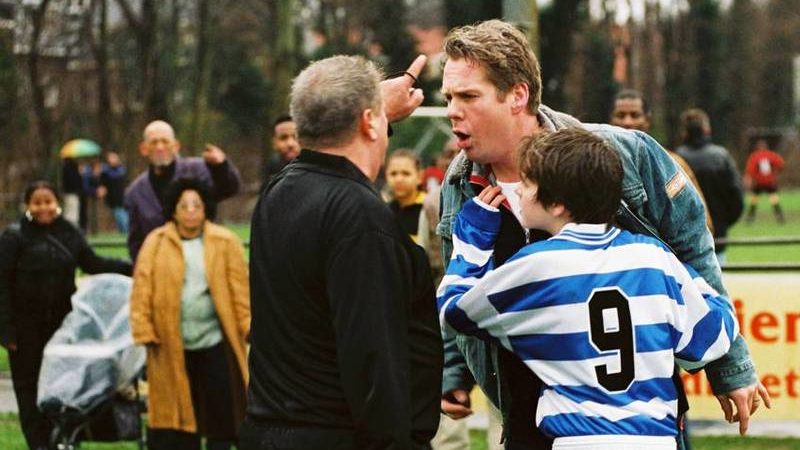A.D.ministration: Developing a Pragmatic Mindset
There are countless responsibilities and tasks which athletic administrators have to perform that are essential to keep their program operating at the highest level. This means that in order to become more effective and efficient, you have to look to improve by incorporating new approaches, techniques, and best practices. However, there is another element which you should develop in order to survive and succeed in your position.
It would also be extremely helpful if one could develop a pragmatic mindset. This involves coming to grips with a few truisms or maxims regarding how you think, approach, and perform your responsibilities. It is the mental aspect of how the real world operates and this goes beyond any technical skills which an athletic administrator uses. One might also explain this process by trying to understand human dynamics which include a little psychology, motivation, and cause and effect.
The following are a few specific examples of axioms or generalities which should be helpful as you try to navigate the challenges of your position. Don’t spend time obsessing about things that are beyond your control. While taking this approach isn’t necessarily easy, it is vital so that you can deal with items that you can control. There are always going to be directives that emanate from your supervisor, new legislation, natural disasters, and a whole host of things that you haven’t created but still affect your efforts. By understanding this phenomenon, you can avoid extra time spent with concerns, worry and simply tackle the task.
Don’t spend time obsessing about things that are beyond your control. While taking this approach isn’t necessarily easy, it is vital so that you can deal with items that you can control. There are always going to be directives that emanate from your supervisor, new legislation, natural disasters, and a whole host of things that you haven’t created but still affect your efforts. By understanding this phenomenon, you can avoid extra time spent with concerns, worry and simply tackle the task.
Understand that you can’t please everyone. Regardless of the time and effort that you have spent considering all of the facts, exploring possible alternatives, and selecting the best solution, someone will be unhappy with your decision. This is just a fact of life and it may be unsettling, but understanding this possibility is also essential for you in order to deal with issues and problems. Do your best and move on to the next challenge.
Come to the conclusion there is never enough time to do everything you need or want to do.
Your job is simply overwhelming and has too many tasks and responsibilities. Starting earlier in the day or staying later, really does little good because there is too much on your plate. Certainly, you should work hard and explore every possible way to save time and to become more efficient. But do understand this dilemma.
Pick your battles. While this is good advice with all constituents, it is particularly pertinent with regard to your supervisor — principal or superintendent. Give advice and input when asked and refrain when you aren’t offered the opportunity. And even when you have the chance to provide input or offer an opinion, don’t challenge everything. Only do so for important, critical issues.
Think before you speak. Sure, you’ve heard this maxim before. But you always want to be controlled and use a measured response. Make sure that you are correct and totally understand the situation. And above all, be as positive, polite, and professional as possible. This caution should also include being careful expressing yourself in any written form including e-mail.
Realize that you are not infallible and that you may occasionally make a mistake. While no one wants to be in this position, if a miscue happens, admit to it, make corrections and learn from it. It is also important to apologize to any individual who may have been affected.
Admit to yourself that you may not have all the answers. Considering the extent and magnitude of your position, you shouldn’t be expected to know everything. This means that you should do your best to stay abreast of developments and to keep expanding your background. As long as you take the approach that you will look for the answer and try to continually learn, this is all that should be expected.
Appreciate the fact that it is so much better to be proactive than being reactive. Anticipating and heading off potential problems is a much more efficient method of handling issues. Once something becomes a full-blown obstacle or challenge, it may take on a life of its own and may continue to grow and fester. There is a great expression, ‘nip it in the bud,’ and minimize its effect.
Take some time to reflect. While most athletic administrators are extremely busy and often overwhelmed, it is also important to occasionally step back and mentally review one’s decisions and actions taken. Asking yourself if something could have been done differently or better is time well-spent. If needed, there is also nothing wrong with asking for advice, input, or an opinion from another professional when seeking clarity or for ideas involving an improved response.
Don’t allow perfectionism to stall or derail your efforts. It is extremely common for most individuals to want to produce products or efforts which are exemplary. This is admirable. However, perfectionism can become a major hurdle and impediment for completing projects or making a final decision. Strive to do your best, therefore, but realize that there is also a point when you have to finish and move onto the next issue or task.
Look in the mirror and do you like what you see? This does not mean that you are looking at the bags under your eyes due to lack of sleep or the increasing grey hair on your head. If you have done all of the right things for your student-athletes and coaches, the only expectations and standards that you have to meet are your own.
Never forget and remind yourself why you do the job. Your goal and total focus should be to provide the best education-based environment for your student-athletes and coaches. While the trials and tribulations which occur may temporarily demand your energy and effort, you have to periodically refocus and redirect your attention, commitment, and enthusiasm. By always putting the young people and your coaching staff first, you can survive all the hurdles which may arise.
With the numerous tasks and responsibilities that athletic administrators have, it is always a good idea to work on incorporating new techniques, approaches, and best practices. Improvement is a necessary and worthy goal. But one also should learn from experience, seek advice and develop a pragmatic mindset to handle the problems, difficult situations, and challenges involved with the position.





